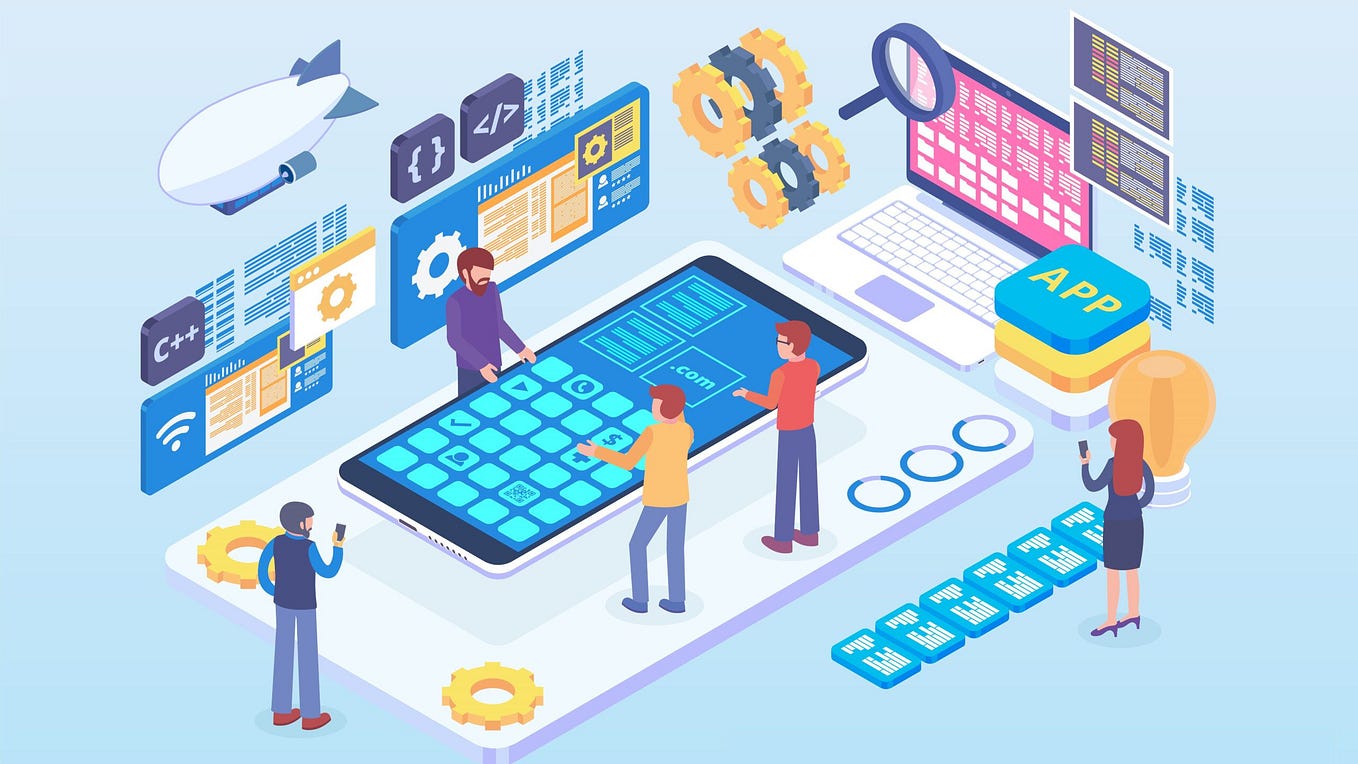The world is becoming increasingly mobile-first, and apps are at the heart of this transformation. From ordering food to managing finances, mobile applications power almost every aspect of our daily lives. For beginners, stepping into Mobile App Development may feel overwhelming—filled with technical jargon, endless tools, and steep learning curves. But the truth is, creating your first app doesn’t have to be intimidating. With the right approach, tools, and mindset, even someone with little coding knowledge can start building functional and engaging apps.
At Novus Web, we’ve seen how the right guidance can turn a simple idea into a fully functional application. Whether you want to build apps for business, education, or personal projects, learning the fundamentals gives you the power to innovate. In this article, we’ll cover essential tools, beginner-friendly tips, and best practices that can help you begin your journey in app development without getting lost in the complexity. By the end, you’ll not only understand where to start but also how to build apps that stand out in today’s competitive market.
Understanding the Basics of Mobile App Development
Before diving into tools and frameworks, it’s crucial to understand what Mobile App Development really means. At its core, app development is the process of designing, coding, and launching software specifically created for mobile devices like smartphones and tablets. Apps are usually categorized into three main types:
- Native Apps – Built for a specific operating system (iOS or Android) and offer high performance.
- Hybrid Apps – Combine web and native technologies, offering flexibility and cost efficiency.
- Web Apps – Accessed through browsers and don’t require downloads but provide limited functionality compared to native apps.
As a beginner, knowing which type of app you want to build is the first step. For example, if you’re creating an app exclusively for iPhone users, focusing on iOS development will save you time and effort. However, if your target audience is diverse, a cross-platform approach might be better. Once you have clarity, choosing tools and languages becomes much easier.
Beginner-Friendly Tools for Mobile App Development
The right tools can make or break your first app-building experience. Luckily, beginners today have access to user-friendly platforms and development kits that simplify the process:
- Android Studio – Google’s official IDE for Android apps. It includes everything you need, from a code editor to an emulator for testing.
- Xcode – Apple’s official environment for iOS development, perfect if you’re targeting iPhone and iPad users.
- Flutter – A popular cross-platform framework by Google. It allows you to build apps for iOS and Android using a single codebase.
- React Native – Backed by Meta, this framework is great for building fast apps using JavaScript and is widely used by startups.
- No-Code Platforms – Tools like Bubble or Adalo let you create simple apps without writing code, ideal for beginners experimenting with app ideas.
As you start, pick one tool and master the basics before jumping between platforms. This not only builds your confidence but also helps you understand the logic behind app creation.
Tips to Get Started Without Feeling Overwhelmed
Starting from scratch can feel daunting, but breaking the process into small steps makes it manageable. Here are a few practical tips:
- Start with a Simple Idea – Don’t aim for a complex app at first. A to-do list or basic calculator is a great starting project.
- Focus on UI/UX – Even the simplest apps can stand out if they’re visually appealing and easy to use. Prioritize design and navigation.
- Learn a Little Every Day – Spend 30–60 minutes daily practicing coding or experimenting with design. Small efforts compound into big progress.
- Use Online Resources – Platforms like YouTube, Coursera, and Udemy offer free or affordable tutorials tailored for beginners.
- Join Communities – Engaging with forums like Reddit or developer groups helps you solve problems faster and stay motivated.
Remember, app development is a journey. Each mistake you make teaches you something valuable that you’ll use in your future projects.
Best Practices for Building Strong Mobile Apps
Once you’ve gotten comfortable with the basics, adopting good practices early can set you apart as a developer:
- Keep Performance in Mind – Optimize your app to run smoothly without draining too much battery or data.
- Test Regularly – Don’t wait until the end to test. Use simulators and real devices throughout the process.
- Secure Your App – Protect user data by following security protocols and using trusted libraries.
- Collect Feedback – Let friends or beta testers try your app and give honest opinions before publishing.
- Stay Updated – Mobile technology evolves rapidly. Keep learning about new frameworks, tools, and design trends.
By applying these best practices, you’ll avoid common beginner mistakes and build apps that users actually enjoy.
Why Consistency is the Key to Growth
The biggest difference between those who succeed in app development and those who give up is consistency. Mobile app creation is not about building something perfect on the first try—it’s about improving with each project. Stick to a learning routine, stay curious, and challenge yourself with slightly more complex projects over time.
At Novus Web, we encourage beginners to treat every app they create as a learning milestone. Even if your first app doesn’t reach the app store, the experience gained will prepare you for bigger and better projects in the future.
Final Thoughts
Mobile App Development might look complex, but with the right tools, mindset, and approach, beginners can quickly find their way. Start small, focus on user experience, and commit to consistent learning. By following the tips and best practices shared here, you’ll not only create your first app but also build the foundation for a rewarding journey in technology.



